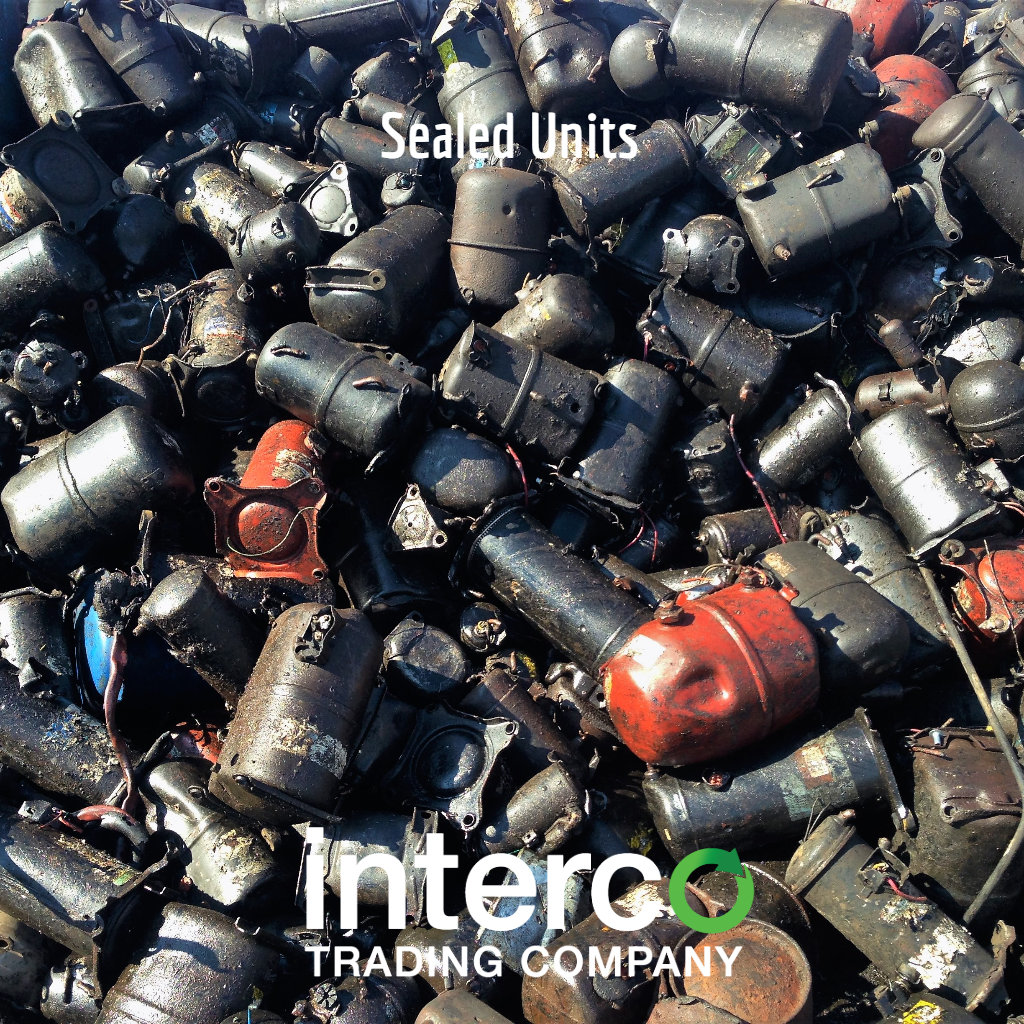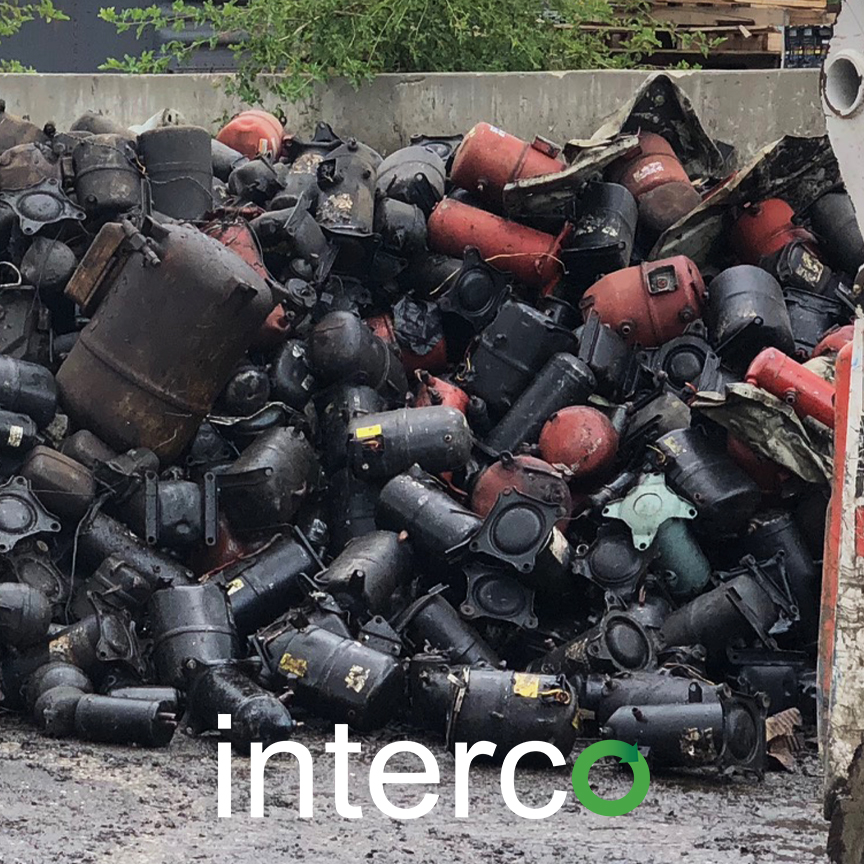How to Recycle Sealed Units
Sealed units are compressors and gas chambers that exist mainly in refrigerators, freezers and air conditioners. They pressurize the gas which creates a powerful condensation. After a short shelf life, they turn into large scale waste. Thus, recyclers all over the world take scrap sealed units to scrapyards for recycling. It is crucial to learn how to recycle sealed units.

The Recycling Process
The process of recycling sealed units simple but require close attention. This is where professional recyclers come in.

- Recyclers purchase sealed units scrap from scarp yards and bring them to the recycling plant.
- Next, the recycling company safely displaces or filters out any gas remaining in the units.
- Then, recyclers strip the scrap sealed units to their individual components (i.e. motors, copper wiring, screws, rings, bearings, etc.)
- Afterward, valuable parts like rings and bearings are taken back to the assembling factory if they are still in good shape. If not, they are recycled.
- Subsequently, recyclers separate the metallic parts of the units according to their different types (i.e. copper, steel, etc.)
- Furthermore, the metals are melted in high-temperature furnaces to cast the molten metals into new units.
- After cooling, recyclers test the refurbished units for leaks and noise to assure consumer quality and diminish pollution.
Since they are so big, scrap sealed units take up a great deal of space in scrapyards. But, when properly managed, these units can avoid taking up space in landfills, oil leaks and having a negative impact on the environment. Recyclers buy sealed units scrap and breaks it down to its individual components. This allows its materials to be reused.
Because the recycling process has been examined, one must understand the importance of this process.
Why It Is Important to Recycle Sealed Units
Recycling sealed units scrap…

- Prevents landfill contamination
- Prevents gas leaks
- Reduces pollution
- Protects natural resources
- Reuses valuable materials
By reusing sealed units scrap, less space is taken up in landfills which prevents solid waste and contamination. Also, these sealed units sometimes have holes which allows for remaining gas to leak into the environment. These gasses could be toxic (i.e. ammonia) and lead to air pollution.
Additionally, properly discarding scrap sealed units the correct way protects natural resources and saves the environment by reducing pollution and reusing valuable resources. This is refereed to as urban mining.
At last, sealed units are metallic and contain motors and copper windings constituting the core. While scrap dealers classify inner motors as low-grade scrap, the copper wire is some of the most valuable metal scrap. This material can be reused to make more units and other products.
Conclusion
All in all, sealed units are a very common industrial, recyclable item. Recycling sealed units prevents landfill contamination, prevents gas leaks, reduces pollution, protects natural resources and reuses valuable materials.
To make a profit off your units and help the environment in the process, click here to contact Interco.